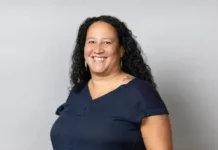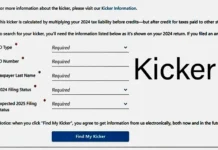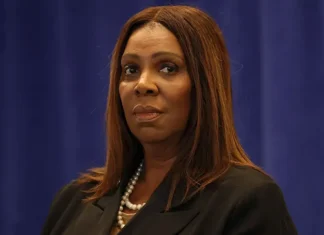
Multnomah County’s deflection program, introduced alongside Oregon’s new drug possession law, has shown early success in its first 30 days. Since September 1, 2024, local law enforcement officers have referred 71 individuals to the County’s deflection program, which offers recovery, housing, and mental health services as alternatives to entering the legal system for low-level drug possession.
The program follows Oregon’s recent legal shift, reclassifying the possession of small amounts of illegal drugs as a misdemeanor. Individuals found with drugs are now eligible for deflection, allowing them to access critical services instead of facing jail time. Multnomah County leaders are optimistic about the program’s early results, seeing it as a pathway to help individuals struggling with addiction and mental health issues.
“At this critical moment for our community, we are committed to building a system to make sure law enforcement connects those eligible for deflection with behavioral health and addiction resources. We’re doing that,” said Multnomah County Chair Jessica Vega Pederson. “This system moves people away from incarceration and toward health and healing, makes our community safer, and begins addressing some of our gaps in treatment. We have a long way to go, but this first month makes me optimistic about what’s possible.”
For the 71 people who have been referred, outreach workers have made 136 total referrals to services, including sobering services, detox treatment, inpatient and outpatient programs, mental health services, medical care, housing, temporary shelters, and peer-delivered recovery support. These services provide a holistic approach to stabilizing individuals in need, aiming to keep them out of the criminal justice system.
Grant Hartley, director at Metropolitan Public Defender, emphasized the importance of the deflection program’s compassionate approach.
“Multnomah County’s deflection program, unlike the criminal legal system, can quickly connect individuals with essential stabilizing services and peer support to help guide them down the long road to recovery,” said Hartley. “It provides support and compassion, as an alternative to incarceration, to motivate individuals to engage in treatment and other services.”
The deflection option was made possible earlier this year when the Oregon Legislature passed House Bill 4002 in February 2024. The bill gave counties the ability to offer deflection to individuals found in possession of small amounts of drugs. In Multnomah County, the program operates in collaboration with law enforcement and behavioral health partners, giving individuals 30 days to access services once they opt for deflection. If they do not engage with the services within that timeframe, they become ineligible for deflection for the next 30 days. If stopped by law enforcement again during this period, they may be arrested.
The program is a product of a collaborative effort between several key leaders, including the Portland and Gresham police chiefs, the Multnomah County Sheriff, the Multnomah County District Attorney, Metropolitan Public Defender, and representatives from the Multnomah County Circuit Court. Together with the Health Department and other local agencies, they worked to create a structure that allows law enforcement to offer deflection as an immediate alternative when individuals are found in possession of illegal drugs.
Starting on September 1, the Health Department began deploying mobile outreach workers to connect eligible individuals with services on the spot, as soon as they are stopped by law enforcement. The County has worked closely with the Portland Police Bureau, the Multnomah County Sheriff’s Office, and the Gresham Police Department to monitor the outcomes of these interactions.
“We recognize that access to treatment is the most effective pathway to recovery for those struggling with addiction,” said Gresham Police Chief Travis Gullberg. “This is why we are committed to supporting deflection work and ensuring there is a viable alternative to incarceration for those in our community who need it.”
Portland Police Chief Bob Day echoed the program’s early success.
“I am encouraged by what the Portland Police Bureau and our partners have been able to accomplish in the last month. PPB remains committed to helping individuals suffering from addiction find a path forward while simultaneously doing what’s best for our community and organization,” he said.
Several outreach and behavioral health organizations are key partners in the program, including 4-D Recovery, the Promoting Access to Hope (PATH) team, Volunteers of America, and Tuerk House. These organizations respond to calls from law enforcement and immediately connect individuals eligible for deflection with the services they need.
Tony Vezina, co-founder and executive director of 4-D Recovery, has seen significant progress in just the first month.
“Every day, our outreach teams are making contact with people who are looking for help. Peer outreach will be key in moving more people toward recovery and improving community safety and livability,” said Vezina. “Six
months from now, the public will have a better understanding of the successes that are happening and the number of people who are getting into treatment. Help is coming. Things are changing. Services are being ramped up.”
As part of the ongoing expansion of recovery resources, the Coordinated Care Pathway Center—operated by Baltimore-based provider Tuerk House—remains on track to begin serving participants by mid- to late October. Renovations at the center are nearly complete, and staff hiring and training are well underway.
“Our Tuerk House team is ready to open the doors of the Coordinated Care Pathway Center and begin serving the people of Multnomah County,” said Bernard Gyebi-Foster, Chief Executive Officer of Tuerk House. “Over the past 60 days, our leadership team has worked with our community partners to hire and train new staff. Each person who walks into the Center will be greeted by experienced and compassionate professionals who are prepared and eager to support them on their recovery journeys. We are committed to providing these individuals with the highest level of care and attention and working with the surrounding neighborhood to quickly address issues as they arise.”
Multnomah County remains hopeful that the deflection program will continue to grow and improve. As it expands, the goal is to reduce recidivism, offer compassionate alternatives to jail, and create a healthier and safer community by addressing the root causes of addiction and mental health struggles.















